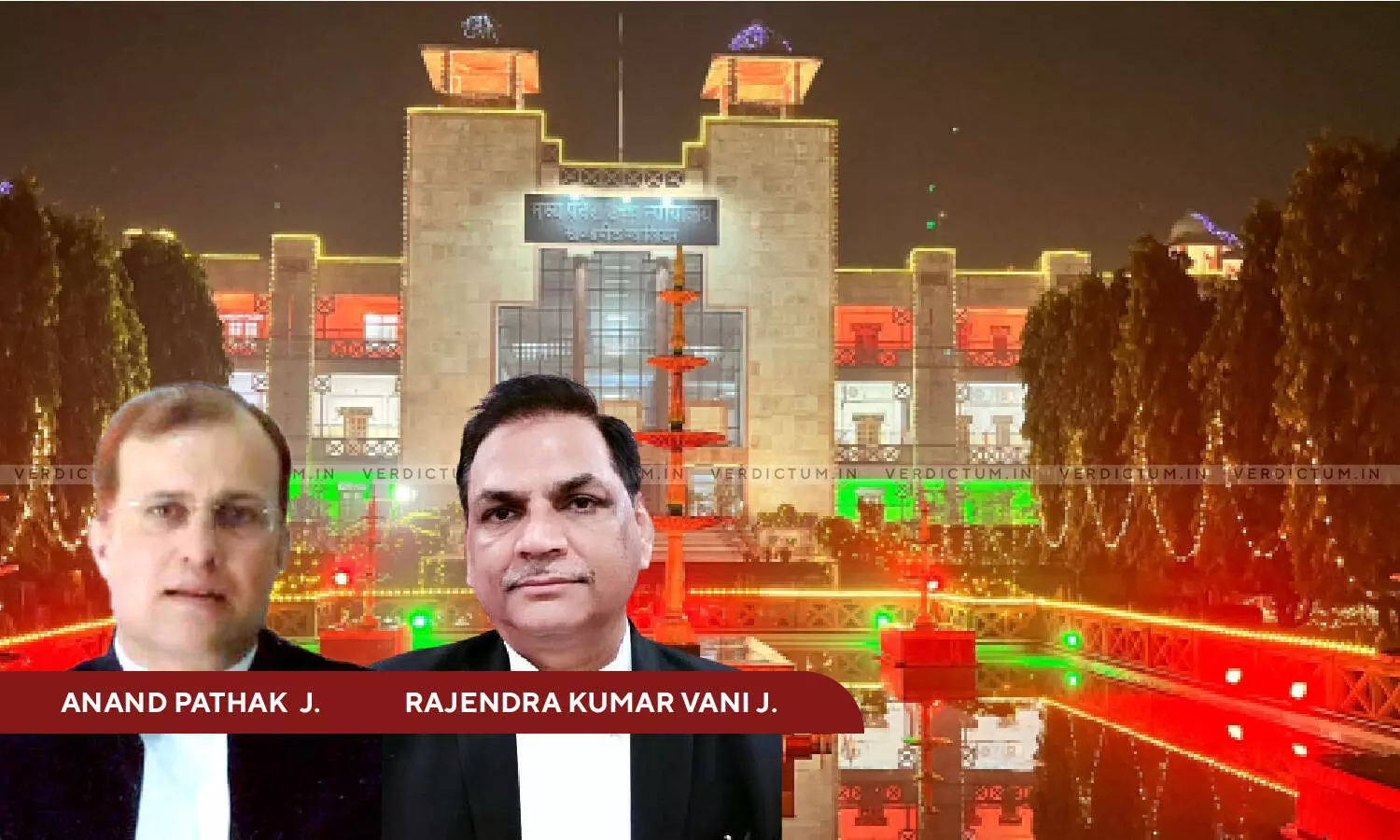
Justice Anand Pathak, Justice Rajendra Kumar Vani, Madhya Pradesh High Court
Madhya Pradesh High Court Tells Father To Request From Mother To Meet Child In Custody Case; Says It's The Mother’s Discretion To Permit The Same
 |
|The Madhya Pradesh High Court disposed of a Habeas Corpus Petition filed under Article 226 of the Constitution by a father who sought to trace and produce his minor child.
The Madhya Pradesh High Court, in a custody case, held that a father can ask the mother to permit him to meet their son, but it is entirely her discretion whether to allow personal meetings or video calls.
The Court disposed of a Habeas Corpus Petition filed under Article 226 of the Constitution by a father who sought to trace and produce his minor child before the Court and deliver his custody to the Petitioner for repatriation to the U.S. in compliance with a U.S. Court Order. “In the conspectus of facts and circumstances of the case, despite the fact that petitioner is making efforts to meet his child, legal provisions and judgments as referred above do not come to his rescue. Thus, the petition fails,” the Court held.
A Division Bench of Justice Anand Pathak and Justice Rajendra Kumar Vani remarked, “So far as the judgment in the case of Yashita Sahu (supra) is concerned, it is a decision rendered by two Judge Bench and that judgment has not taken into consideration earlier judgments rendered by three Judge Bench of Apex Court in the case of Nithya Anand Raghavan (supra), Kanika Goel (supra) and two Judge Bench in the case of Prateek Gupta (supra).”
Advocate Prashant Sharma appeared for the Petitioner, while Government Advocate Saket Udainiya represented the Respondents.
Brief Facts
The Mother submitted that there was no specific order of physical custody given by the US Court in favour of the petitioner for physical custody of child. The mother also highlighted that the welfare of the child is paramount consideration and that all litigations in India are pending between the parties for custody of child as well as maintenance and other issues.
Court’s Reasoning
The High Court noted, “On merits, respondent No.2 vehemently opposed the allegations of petitioner and submits that because of misbehaviour and conduct of petitioner she was forced to leave USA. According to respondent No.2 she tried to mend the relationship by making efforts to contact him but in vain. Petitioner did not respond to the e-mails/messages sent by her. Respondent No.2 levelled series of allegations (as per reply/synopsis filed) and held the petitioner responsible for discordant relationship.”
“Even otherwise, petitioner has alternative remedy as per different provisions of CPC including Section 44A and Sections 13 and 14 of CPC and if required and if law permits, may proceed under Guardians and Wards Act, 1890. While doing so, petitioner has to satisfy the exceptions carved out in Section 13 of CPC,” the Bench remarked.
Consequently, the Court ordered, “However, looking to the nature of dispute and the fact that petitioner being a father, may request respondent No.2 to meet his son and if she feels so, it is her discretion to permit for meeting personally or on video call. That is an expectation raised by the Court and not issuing any command to comply. It is purely between the couple and for respondent No.2 to decide.”
Accordingly, the High Court disposed of the Petition.
Cause Title: Vishnu Gupta v. State Of Madhya Pradesh & Ors. (Writ Petition No. 10746 of 2024)
Appearance:
Petitioner: Advocates Prashant Sharma and Rudraksh Gupta
Respondents: Government Advocate Saket Udainiya